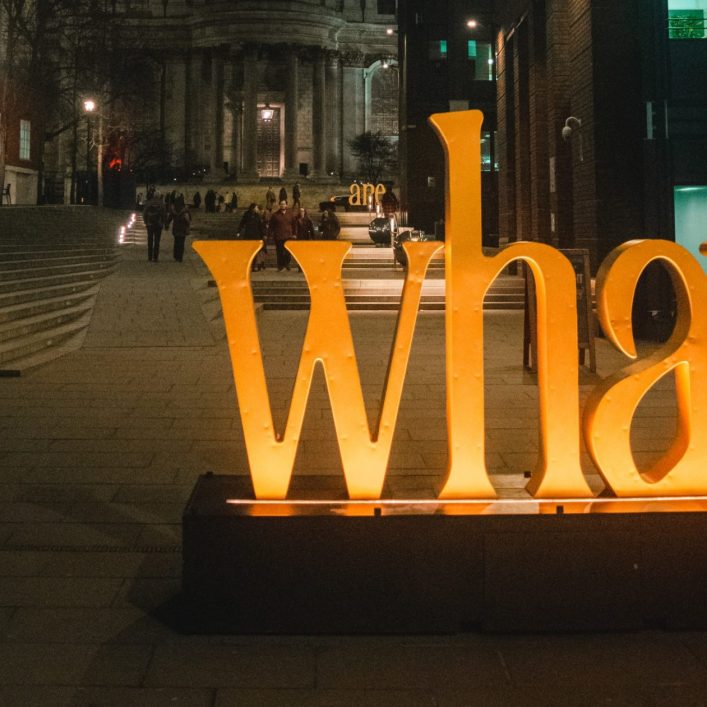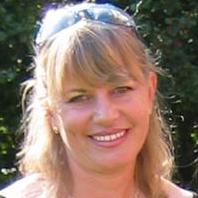My Question Is…
July 20, 2020

Do you ask enough questions? This poem and foreword will help to challenge your thinking and encourage you to keep questioning the world around you.
“Ask Questions.” From 24 years ago, I still remember that single clear direction, printed on the back of a university t-shirt. It struck me then, and I still find it strikingly helpful today.
Ask questions: Anyone can do it. And everyone can benefit from it. It’s what comes naturally to little children in the grip of wonder and curiosity. It’s what impels discovery and
progress—in science, in history, in technology, in worldviews, in whatever we put our minds
to. It shapes us into sturdy people of principles and beliefs, knowing more clearly what we
think and why. Ask questions and you won’t end up as unthinking tumbleweed, blown hither and thither by every fad, meme and bandwagon.
Ask questions: In personal conversations Jesus most often asked questions of the people he
met. Simple questions and yet they helped people to make profound discoveries about
themselves, about life and this world, and about Jesus. Tailor-made for each person he
spoke with, questions were Jesus’ perceptive way of opening the minds of very ordinary
people to his astounding good news.
Ask questions: That’s what this poem does. In a small way, on one issue where the current
of our culture is flowing like a raging torrent today, it simply asks a question. Some find
themselves embracing a belief without knowing why. Some want to swim against the tide
without knowing how. Either way, I hope this poem will help: encouraging us all to start and
to keep asking questions.
My question is…
We walk a street at night as if we’re guilty,
As if we break some law by being there,
Hyper alert to shadow, sound or movement—
An alley’s darkened mouth,
A window’s cold, fixed stare—
And as we hear our footsteps on the pavement,
We listen for an echoing pitter-pat:
This, the night-time fear that often stalks us.
My question is, what do you know of that?
From earliest days we’ve grown under a spotlight.
There’s no escaping its exacting glare:
Innumerable the pictures, comments, features
That preach how we should craft
Our shape or face or hair…
We know the tiniest details of our body,
Which all against perfection others rate.
We can’t believe we’ll never be found wanting!
My question is, what do you know of that?
We mark months not just by the calendar
But also by each bodily sensation:
The changeful patterns of our moods and pains,
Volcanic irritation
Or needling ovulation,
Our sudden spurts of zest, our three-day headaches,
The drag when we are bleeding or the fret
When we are not—our body’s constant
mithering.
My question is, what do you know of that?
Our way ahead through life is complicated:
Nothing so simple as to merely find
A good career or gratifying vocation
When a clock is ticking
Loudly in your mind.
The baby question lurks and later haunts us:
We fear we will or won’t, or we’re too late,
We fear we might regret our path for ever.
My question is, what do you know of that?
A baby’s birth assaults us like an earthquake:
Our body commandeered—no more our own,
Then days and nights, even our minds disrupted
By the baffling alien
That occupies our home.
Or else these births assault us with such heartache:
Each underscores once more how we’ve missed out—
With stinging tears we send congratulations.
My question is, what do you know of that?
Encumbrance is a fact of life for us,
And second shifts kick in without a pause.
The childcare buck must stop with us, and then
It’s not just kids who need us
To pick up those dropped balls.
Shape-shifters we, who fit round those around us,
And chores which none feel they need contemplate
Inevitably end up at our door:
My question is, what do you know of that?
You might think when you see us in the adverts
That all we ever think about is hair,
Or that, essentially, we are our perfume,
Our bags, our heels, our makeup
Or the brands and styles we wear.
You might think that old age will barely touch us,
Will never leave us crepey, wrinkled, fat—
At worst just silvery, gracious, Mirrenesque!
Well, just how wrong would you be about that?
For us long years exact a heavier toll
And at a certain age we’ll disappear,
No more to grace most ads, TV or films:
It’s not that we have gone—
We’re very much still here!
But somehow we become invisible.
Whatever we become, “they” don’t want that!
Old bats, old crones—that’s what “they” think we are:
My question is, what do you know of that?
We feel the outrage of inequity,
And others of us suffer it much more:
Deprived of education, healthcare, safety,
And solely for the reason
Of being who they are;
Deprived of voice or votes or independence,
Some banned from driving, some who can’t go out,
No choice for them of if or who to marry:
It’s not their place to ever call a shot…
We know that mostly we are fortunate,
We know these others of us have things worse
And yet, because we share those attributes,
What comes to one of us
Is felt by all of us
In ways that if you haven’t grown and formed
As we all have, you simply can’t relate
(Beyond a general human sympathy):
My question is, what do you know of that?
We do not say all this to win your pity.
We want to show you what it is to be
In detail what we are—the things that make us:
That essence can’t be faked
With paint and frippery,
Which must be as absurd and as offensive
As blackface has become—that sad cliché
That’s risible, reductive and demeaning:
I ask, should either be condoned today?
There are so many different types of us,
We are diverse and miscellaneous,
And yet these things that have been spoken of
Are recognisable
To every one of us:
We know that each of us is individual,
We know that we are not identikit,
But there’s a commonality that bonds us:
My question is, what do you know of that?
We’ve only scratched the surface of this matter
With a rather random mixture of some things
That form our common life experiences.
And now a final question
This inquiry brings:
It’s clear that in our bodies, minds and brains,
And in the ways that others tend to view
And treat us, we retain key group distinctives:
That’s us, then. My last question—is that you?

By Anne Woodcock
Anne is an editor at the Good Book Company and active in teaching the Bible to internationals, women and children. She is married to Pete, with two children.